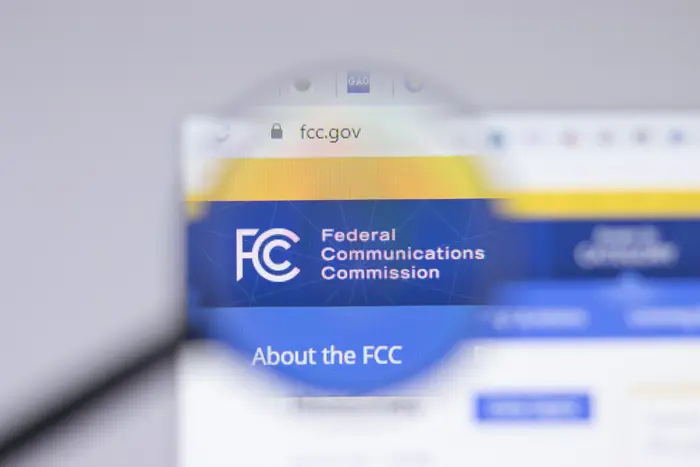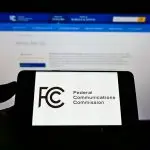When a business faces a warning under the Telephone Consumer Protection Act (TCPA), it’s a critical signal of a possible infringement of regulations that govern telemarketing and the use of automated communication systems. Handling these warnings with a strategic and proactive approach is key to minimizing legal risks and maintaining the company’s reputation.
Here are strategies that you can employ to prepare yourself for a potential TCPA warning, or to equip yourself with the knowledge and skills that you need to properly address one.
Where TCPA Warnings Come From
When a TCPA violation warning is issued, it is not considered legal action, rather it is an informal complaint brought by a consumer who believes that his or her TCPA rights have been violated. That consumer will issue the violation warning through either a law firm or the Federal Communications Commission (FCC). TCPA violation warnings are a serious matter and should not be ignored. Although the warning itself is informal, ignoring such notices can have harsh legal and financial consequences.
TCPA Rights and Why They Exist
Congress enacted the Telephone Consumer Protection Act (TCPA) in 1991 to address the growing number of telemarketing calls that were overwhelming American citizens. The law restricts the amount of unauthorized prerecorded voice messages, unsolicited text messages, auto-dialed calls to cell phones, violations of the Do Not Call registry, and deceptive caller ID practices. Because of these rights, businesses should be careful about how they reach out to prospective consumers, especially through phone calls or SMS messages.
Steps You Should Take
A TCPA warning does not have to be a stress-inducing situation. We’ve laid out a few steps that you can take to make the process of responding to the warning easier:
1. Acknowledgment and Comprehensive Review:
The first step involves recognizing the validity of the complaint. This acknowledgment is a crucial aspect of respecting consumer rights and sets the tone for the subsequent steps. Following this, the business needs to undertake a thorough review of its TCPA compliance policies and procedures. This review should aim to identify any gaps or oversights in the current system that may have led to the violation.
It’s not just about finding the immediate error but understanding the larger context in which the error occurred. This could involve evaluating training programs, consent management processes, and how consumer data is handled and stored.
2. Direct Engagement and Corrective Action:
Once the issue is understood, direct engagement with the affected consumer is essential. This step goes beyond a mere apology; it’s about assuring the consumer that their concerns are taken seriously and that steps are being taken to rectify the issue. This communication should be clear, empathetic, and transparent.
Following this, immediate corrective actions should be implemented. These actions could range from updating contact lists, enhancing consent verification processes, to modifying communication strategies. The focus should be on not just remedying the current issue but also on putting measures in place to prevent similar occurrences in the future.
3. Ongoing Strategies for Compliance and Prevention:
Handling a legitimate TCPA complaint extends beyond immediate measures. It should catalyze a long-term strategy for continuous improvement and compliance. This includes regular monitoring and auditing of communication practices, ensuring they align with the latest TCPA guidelines. Training and retraining of staff should be conducted to reinforce the importance of compliance and to keep them informed about the latest regulations and best practices. Additionally, consulting with legal professionals, especially in cases involving complex legal challenges, can provide valuable insights and guidance for refining compliance strategies.
Ultimately, the experience of handling a TCPA complaint should serve as a learning opportunity to fortify the company’s commitment to compliance and ethical consumer engagement.
Putting it All Together
A TCPA warning may seem like an issue, but it may be an opportunity to reaffirm your business’ commitment to adhering to TCPA regulations. By acknowledging customer concerns, taking initiative with corrective action, and developing strategies in order to ensure future compliance, your business can be both successful and TCPA compliant.
Don’t wait to receive a warning to take these steps. You can improve your TCPA compliance today without the risk of a major lawsuit.
TCPA Compliance at Legal Brand Marketing
At Legal Brand Marketing, we prioritize TCPA compliance to protect your business from any legal complications. Our website forms are equipped with clear TCPA opt-in language, ensuring that we obtain express consent from users. This approach not only safeguards your business legally but also allows you to concentrate on growing your business. In our commitment to upholding these standards, we’ve partnered with Active Prospect and integrated TrustedForm, which specializes in capturing form submissions and generating opt-in certificates that confirm direct user consent.
Furthermore, Legal Brand Marketing strictly avoids using artificial or prerecorded voices for lead verification. We believe in the personal touch, hence all our lead verification processes are conducted by live agents. Should you need more information about our TCPA compliance strategies or wish to learn about our TCPA opt-in verification tools, please click here or contact us at 1-818-884-8075.






